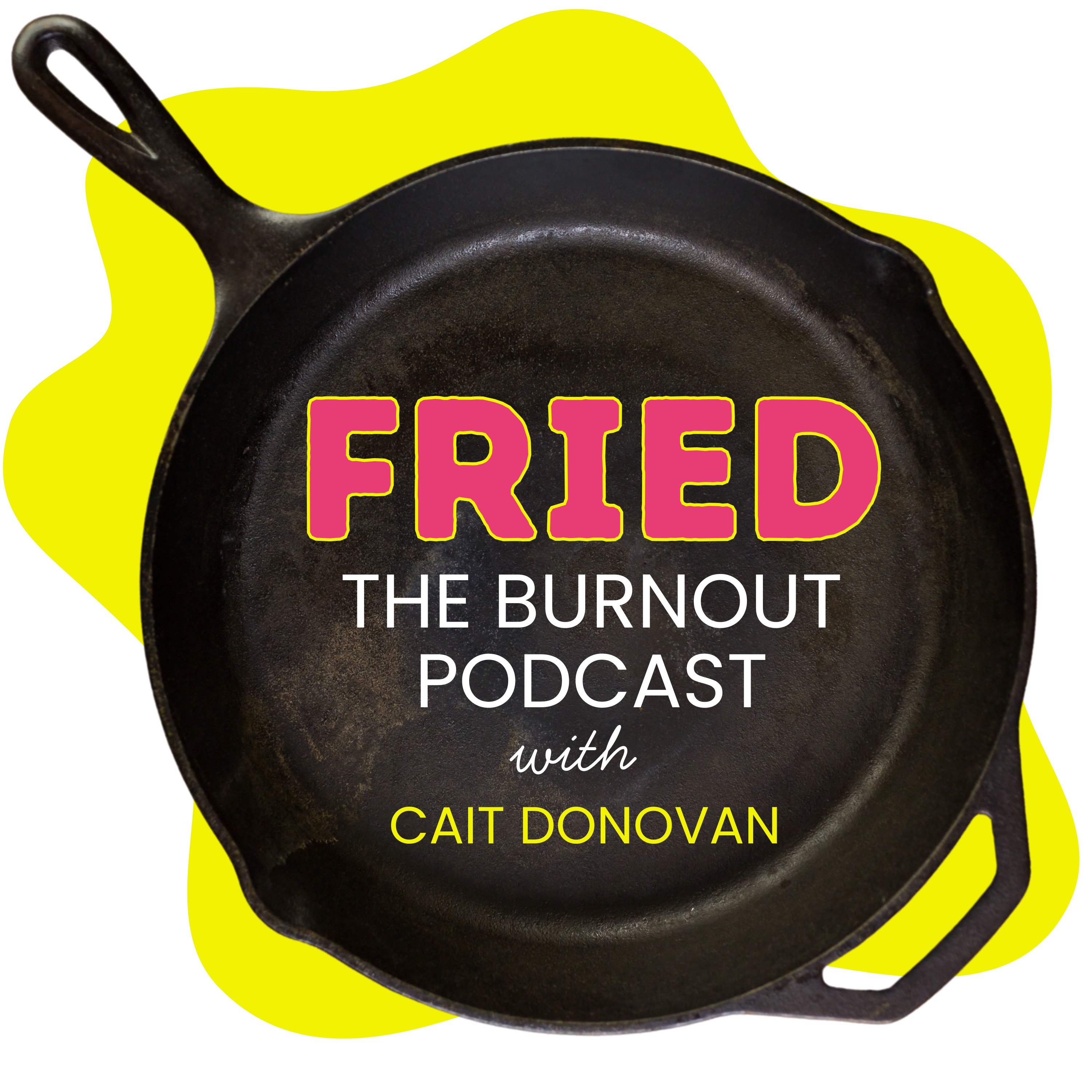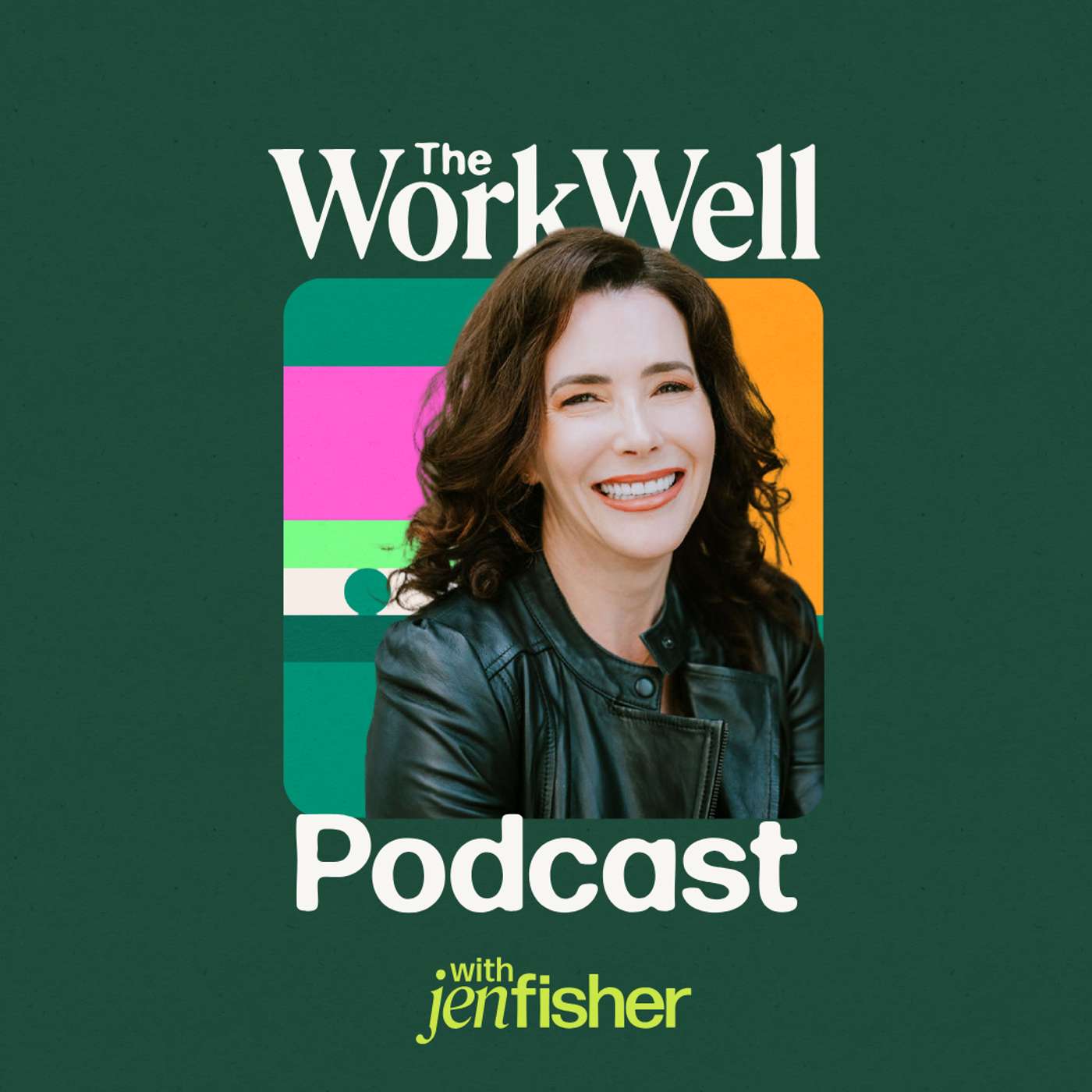
The Balanced Badass Podcast®
The Balanced Badass Podcast® is the show for high-achieving professionals who want to prevent burnout, master work-life balance, and stay badass without losing their sanity.
Each episode, we’re not just tackling your overflowing calendar and keeping your household on track; we’re getting into burnout prevention and recovery strategies so that you have time to breathe, laugh, and savor that much-needed glass of wine at the end of the day.
Think of this podcast as your regular dose of practical advice, a touch of humor, and a little tough love, like catching up with a friend who just gets it. Whether you’re navigating burnout, balancing meetings and meal prep, or carving out moments of self-care, this is the space where we figure it out together.
Disclaimer: My content is for educational purposes only and not a substitute for professional medical or mental health advice. For serious concerns, please consult a qualified provider.
The Balanced Badass Podcast®
When Normal Isn't Possible
In today's shorter episode, I'm sharing some personal thoughts on dealing with the emotional weight of recent events, including a mass shooting close to home and the constant barrage of political noise.
We get into the concept of emotional spillover, why you're feeling extra stressed at work, and how to create temporary normals to cope. Forget "business as usual"; let’s talk about giving yourself permission to be human, finding that balance, and bouncing back slowly when life gets heavy.
Whether it's dealing with community grief or just trying to survive the daily stressors we all experience, I've got some tips to help you manage.
Check out the detailed show notes (https://tarakermiet.com/podcast/) and leave your thoughts or questions about today's topic.
Got something to say? Text me!
-----
I’m Tara Kermiet, a leadership coach, burnout strategist, and host of The Balanced Badass Podcast®. I help high-achievers and corporate leaders design careers that are successful and sustainable.
Here, you’ll find tactical tools, leadership lessons, and burnout education that just makes sense.
👉 Start by taking my free Burnout Drivers Mini Assessment
😍 Join my community on Instagram (@TaraKermiet) and/or TikTok (@TaraKermiet) so we can stay connected!
🎤 Got a question, a topic you want me to cover, or just want to share your thoughts? I'd love to hear from you! Send me a DM or email.
Stay balanced, stay badass, and make good choices!
Disclaimer: My content is for educational purposes only and not a substitute for professional medical or mental health advice. For serious concerns, please consult a qualified provider.
[00:00:00] Hi, friend. Today is gonna be a shorter episode because I've had a lot weighing on my heart lately, to be honest. You see, I live in coastal, North Carolina and this past Saturday, tragedy struck close to home with a mass shooting just a few towns over from ours in Southport. Even if you weren't directly impacted, which thankfully we were not, and also even if you didn't know a single person involved, news like this has a way of settling into the body like a heavy stone.
And if that weren't enough, we're also living in the middle of a political season where we're faced with unprecedented breaking news every hour it seems, the constant noise, the headlines, the arguments online, it all piles onto the stress that we're already carrying. Whether you're deeply engaged in the news or you're trying to tune it out for your own sanity, the reality is that you can't escape the atmosphere.
It seeps into conversations. It fuels anxiety, [00:01:00] and it leaves many of us feeling unsteady. So between what's happening in the news and in our communities and in our own lives, none of us are walking into work as blank slates. We show up to work carrying grief, fear, anxiety. Family responsibilities, personal health issues, global crises, and community trauma all at once, and yet most workplaces still expect us to slip back into business.
As usual, the emails don't slow down, the deadlines don't shift, and the meeting requests keep rolling in. But when something seismic happens in your personal life, in your community, or in the country, normal is a false expectation that can deepen burnout. Psychologists call this emotional spillover when the stress of one part of your life bleeds into another.
The problem is our bodies don't segment stress as neatly as our calendars suggest. A shooting unprecedented [00:02:00] times a health scare or a sick child all live inside the same nervous system that's supposed to power through a performance review or a client presentation. Your body interprets all of it. The fear, uncertainty, stress as potential threat.
This is why after events like these people so often describe feeling foggy, short-tempered, or emotionally detached At work, your brain is busy allocating resources to survival, scanning for danger, rehearsing those what if scenarios, holding back tears sometimes, or managing the swirl of intrusive thoughts.
That mental energy competes directly with the actual demands of your job. Think of it like a computer with too many tabs open. You're technically online, but everything is lagging. You click a button and it takes three seconds to respond. Open another window, and the whole system freezes. That's your brain under emotional spillover.[00:03:00]
It's doing its best with what it's got, but the processing power is maxed out. This is why we see burnout spike not only during personal crises, but also in times of collective stress. The expectation to keep producing at the same level, to be business as usual, when nothing about life as usual, puts you in a no-win situation.
You either perform at the cost of your wellbeing or you slow down and risk being seen as less capable. Both routes erode your confidence and take a hit to your energy. And the instinct so many of us have after something big is to pretend that we can just keep going. But forcing yourself back into normal is like trying to squeeze into clothes that don't fit anymore.
You can tug, you can hold your breath, hell, you can slap on some Spanx and pretend it works for a while, but deep down, you know you're uncomfortable and everyone around you can sense it to. So instead of pretending, nothing's changed, it's smarter to adjust. And the first step is to give [00:04:00] yourself permission to be off.
Most of us were raised on some version of the leave it at the door mentality. You show up, you suck it up, and you don't let the emotions get in the way of your job. But ignoring the fact that you're struggling only drains you faster, being honest, even with yourself gives you space to breathe. Some days you are not going to be the sharpest strategist or the most patient leader.
And guess what? That means you're human. Your next move is to find your minimum viable workday. I coach my clients to identify their floor, the lowest level of effort that still keeps the lights on at work. On heavy days, you don't need to run a marathon. You need to just get through without burning out further.
So maybe that's answering just three essential emails. Showing up to your one must do meeting and then blocking off the rest of the day for low lift tasks or a nap. Depends on the day. That's enough, and that's still progress. [00:05:00] Another thing to remember is that when you're carrying a heavy load connection can feel like just one more thing.
The calls, the check-ins the team happy hours. They might feel impossible. But instead of thinking of connection as another item on your to-do list, think of it as a recharge station. The right kind of connection is fuel, not a drain. And when the world feels shaky, we often need connection more than we think.
The point is that normal isn't a standard to return to. It's a moving target. And when the ground under us shifts, clinging to the old version of normal, only makes the cracks wider. The better path is to create temporary normals or new ways of operating that fit what you're carrying right now. Those temporary normals give you space to adjust without pretending that everything's fine.
We cannot keep designing work around the illusion that humans are machines. When tragedy [00:06:00] happens back to normal is not only unrealistic, it's harmful. Pretending to be fine takes more energy than the hard thing itself. It drains your limited capacity and leaves you less equipped to recover. And when I think about what happened here in Southport, or about the constant breaking news, we're all absorbing right now, I'm reminded of how impossible normal really is.
We can't expect ourselves to compartmentalize that weight and walk into work like nothing's going on. The thing is there's no straight path back to normal. There's only forward and forward looks different depending on the day, the context and the capacity that you actually have to give. The best advice my therapist gave me after my dad died back in 2018 was that no matter the day and what I give, I'm always giving a hundred percent of what I have in that moment.
That may be at 50% of my normal level, but regardless, I'm giving all of that 50%, [00:07:00] and that really helped me in the immediate months of my grief. Sometimes forward movement is full presence, full creativity, and full contribution. But then sometimes forward is simply staying afloat and doing the essentials both count.
So I invite you to stop measuring yourself against normal. That bar doesn't exist anymore, if it ever did. Instead, measure yourself by your willingness to acknowledge what you're carrying, to adjust your capacity with honesty and to connect with others when the weight feels like too much. Because whether it's the grief of a community shaken by tragedy or the constant tension of political division, you don't have to push harder to prove your worth.
You just have to give yourself permission to be human. That's how you resist burnout. That's how you build resilience, and that's how we begin collectively to create workplaces that don't just survive storms, but learn how to carry each other through them. We can erase tragedy or silence the [00:08:00] noise, but we can choose care.
Care for ourselves, our teams, and our communities. That's how we move forward.
Podcasts we love
Check out these other fine podcasts recommended by us, not an algorithm.

Happier with Gretchen Rubin
Gretchen Rubin / The Onward Project
The Gratitude Attitude Podcast
thegratitudeattitudepodcast
Before Breakfast
iHeartPodcasts
A Bit of Optimism
Simon Sinek
Oprah's Super Soul
Oprah
Stuff You Should Know
iHeartPodcasts
Unlocking Us with Brené Brown
Vox Media Podcast Network
We Can Do Hard Things
Treat Media and Glennon Doyle
Take Out Therapy: End Overthinking & Overwhelm for Empathic High Achievers
Rebecca Hunter, MSW
FRIED. The Burnout Podcast
Cait Donovan, Top Burnout Expert for Corporate and Nonprofit Organizations
